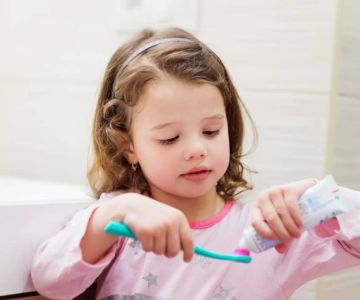Understanding the Importance of Positive Oral Care in Children
Oral health is a fundamental part of overall well-being, especially for children. Developing positive oral care habits early can prevent dental problems such as cavities, gum disease, and even affect speech development. Educators in the United States have a vital role in guiding children towards embracing good dental hygiene as a daily routine. This not only improves children’s health but also builds their confidence and social interactions.
Research shows that children who learn about oral care in school settings are more likely to maintain healthy habits into adulthood. The challenge lies in making dental hygiene lessons engaging and relatable for young minds.
1. Creating Engaging Oral Health Education Programs
One of the most effective ways educators can encourage positive oral care is by designing interactive and age-appropriate educational programs. Instead of simple lectures, schools can incorporate fun activities such as puppet shows, storytelling, and games that demonstrate brushing and flossing techniques. For example, a local school in California introduced a “Tooth Fairy Adventure” program where children role-play as tooth fairies, educating their peers on the importance of brushing after every meal.
Using colorful visual aids and models of teeth helps children visualize how plaque forms and how brushing removes it. These methods transform abstract concepts into tangible understanding, making kids more likely to remember and apply what they learn.
2. Encouraging Hands-On Practice and Demonstrations
Learning by doing is powerful, especially for young children. Educators can set up supervised toothbrushing sessions using model teeth or even real toothbrushes. By allowing children to practice brushing under guidance, they gain confidence and improve their technique. Teachers can also introduce timers or catchy songs lasting two minutes to encourage brushing for the recommended time.
In a Texas elementary school, a "Brush Buddy" initiative paired students to remind each other about brushing and flossing daily, fostering peer motivation. Such peer-involved approaches create a supportive environment where oral care becomes a shared responsibility.
3. Integrating Oral Care into the Daily School Routine
Consistency is key to forming habits. Schools that allocate time for oral care activities during the day help children internalize these behaviors. Simple steps like scheduled toothbrushing breaks after lunch or oral health talks during health education classes reinforce the message.
Teachers at a New York school noticed that children who brushed during school hours showed fewer dental complaints and improved attention spans. These observations highlight how promoting oral care contributes not only to health but also to academic performance.
4. Partnering with Parents and Community Health Professionals
Educators are most effective when they work in tandem with parents and dental health professionals. Organizing workshops or sending home informative materials ensures children receive consistent messages about oral hygiene. Dental visits arranged through school programs also provide practical demonstrations and free check-ups.
For example, a community in Florida partnered with local dentists to provide “Dental Days” where children received education and treatment, reinforcing lessons taught at school. This collaboration strengthens the overall oral health framework supporting children.
5. Using Positive Reinforcement and Rewards
Children respond well to encouragement and rewards. Recognizing efforts through certificates, stickers, or small prizes for maintaining good oral care habits motivates kids to stay committed. Celebrating milestones like a month of daily brushing creates excitement around dental hygiene.
One elementary school in Oregon implemented a reward system that improved oral care compliance by 40%, demonstrating how positive reinforcement can change behaviors effectively.
6. Addressing Challenges and Misconceptions
Educators must also tackle common challenges such as fear of dentists or misconceptions about oral care. Inviting friendly dental professionals to speak and using books or videos that portray dental visits positively helps reduce anxiety. Addressing myths such as "only sugar causes cavities" with scientific facts empowers children to make informed decisions.
By creating an open dialogue and supportive environment, educators help children overcome barriers to good oral care.
Incorporating these strategies into school programs can significantly influence children’s oral health attitudes and behaviors. For those seeking professional guidance or the best products to support positive oral care habits, visit Dentistry Toothtruth to explore tailored services and recommendations that enhance children's dental wellness journey.






 Family Holland Dental4.0 (236 review)
Family Holland Dental4.0 (236 review) Maple Glen Dental Assoc.5.0 (347 review)
Maple Glen Dental Assoc.5.0 (347 review) Dental365 - Bethpage4.0 (456 review)
Dental365 - Bethpage4.0 (456 review) Southside Community Health Services4.0 (186 review)
Southside Community Health Services4.0 (186 review) Legacy Smiles Orthodontic Specialists4.0 (92 review)
Legacy Smiles Orthodontic Specialists4.0 (92 review) South Mountain Family Dental4.0 (480 review)
South Mountain Family Dental4.0 (480 review) The Importance of Oral Health Education During Pregnancy for a Healthy Pregnancy
The Importance of Oral Health Education During Pregnancy for a Healthy Pregnancy Best Tips for Brushing Your Teeth Properly for Healthy Gums: Essential Techniques for Oral Health
Best Tips for Brushing Your Teeth Properly for Healthy Gums: Essential Techniques for Oral Health Why Skipping Dental Checkups Can Lead to Bigger Oral Health Problems
Why Skipping Dental Checkups Can Lead to Bigger Oral Health Problems Advantages of Porcelain Dental Restorations
Advantages of Porcelain Dental Restorations How Can Diabetes Cause Tooth and Gum Problems? Preventing and Managing Oral Health Issues
How Can Diabetes Cause Tooth and Gum Problems? Preventing and Managing Oral Health Issues Healthy Habits for Promoting Good Oral Health and Hygiene: Tips for a Healthy Smile
Healthy Habits for Promoting Good Oral Health and Hygiene: Tips for a Healthy Smile